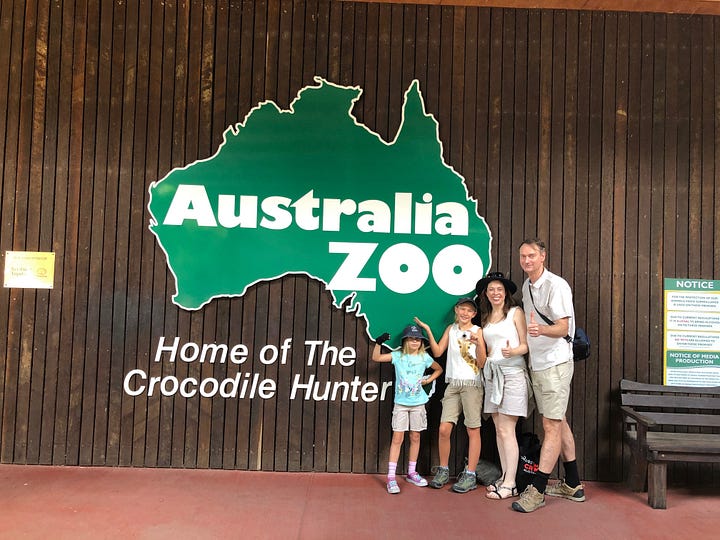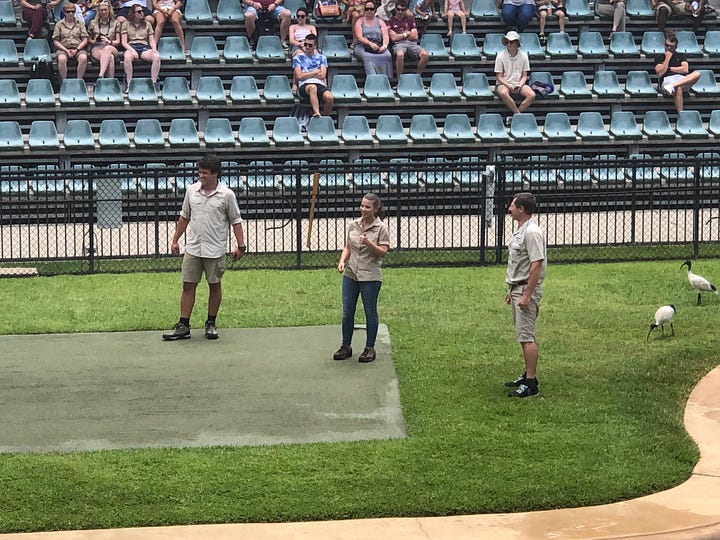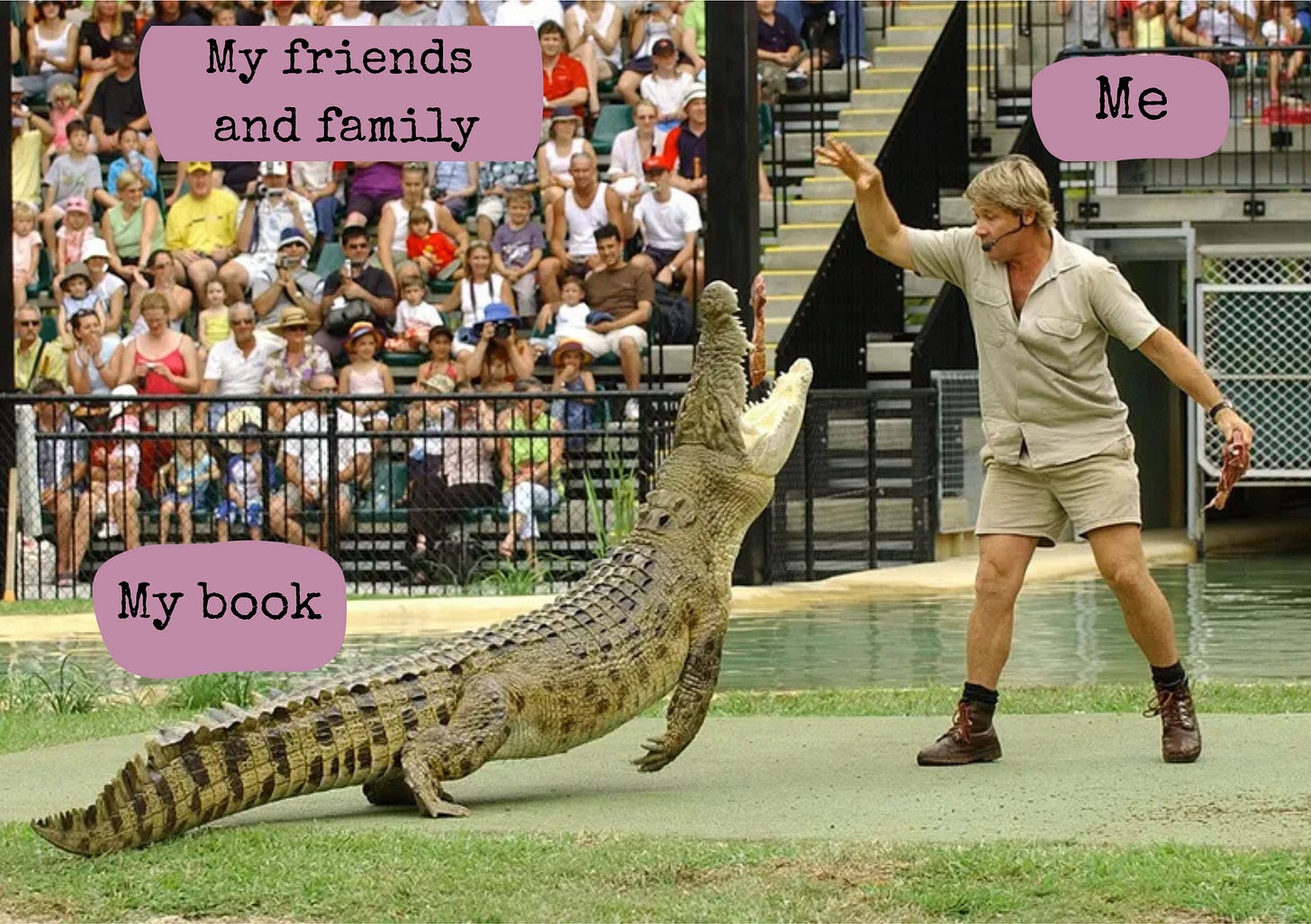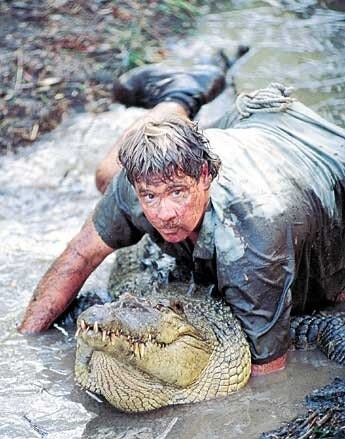Answering your Ask Me Anything questions
My editing background, selecting book themes, long-term impacts of writing in Covid, homeschooling routines, and how my PhD research continues to impact my writing
It’s me again! If you’re thinking, hold on, this is a fortnightly newsletter and she wrote to us last week, you’d be right! As there are five Thursdays in July I’m adding an extra newsletter in so that you still get the Author Notes at the end of the month, and I’ve taken the opportunity to answer some Ask Me Anything questions that I’ve gathered lately.
You asked and I’ve shared:
How my editing background informs my writing
How I select book themes
The long-term impacts of writing in Covid
Homeschooling routines
+ more
Right now, I’m head down and pushing hard to complete my first draft of my tenth novel. It’s probably my biggest story yet with a complex structure, and at times it’s felt like the mental equivalent of wresting with a crocodile.
I’m starting to see it come together now, which is exciting - even though I’m under no illusions that there’s still a lot to do! The next few weeks are critical in getting it towards the finish line, so please send me a virtual cheer of encouragement from the sidelines, and I’ll keep you updated!
Finally, if you’re a new subscriber and want to know more about me, my writing, and my work here, then please check out my About page and my Welcome page (which contains a list of everything I’ve written so far).
Enjoy the Q&A - keep the questions coming - and I’ll be back with July’s Author Notes in a couple of weeks!
Having transitioned from a background in editing at HarperCollins to becoming a bestselling author, how has your editorial experience shaped your approach to writing and storytelling?
I always feel very lucky that I had extensive experience in editing novels before I came to writing and editing my own work, as it’s definitely helped me to pinpoint problems early on. I don’t let my editorial brain kick in too soon as I like to sink into the story and get chunks of it written before I start pulling it apart, but if I get stuck I go over my draft so far and look at it critically, in order to find out where I’ve gone wrong. I don’t think I beat myself up as much as other writers thanks to my experience as an editor, because I know how much editing even the top-tier novels usually need, and how hard it is to see your book clearly after a while. I’m also able to get my story reasonably polished before submission – although there’s still plenty of editing left to do with the in-house team.
Your novels often address contemporary cultural themes and feature strong female protagonists. How do you select the issues you wish to explore, and what impact do you hope these narratives have on your readers?
I’m generally drawn to topics that I find complex, where I want to ask questions beyond the narratives we’re fed through media and popular culture. I look for characters caught up in moral dilemmas or difficult circumstances, at pivotal moments in their lives, and I love exploring their background and psychology, in the hopes of providing depths that readers can enjoy. I try to present different types of heroines that shake up the way we talk about and generalise women’s identities, hoping that readers will feel energised by this and will therefore be fully engaged with my stories. I’m not trying to provide clear-cut answers or endings, but rather to leave plenty of lasting food for thought.
I’ve read that you’re a homeschool mum - how on earth do you balance this with writing?
With difficulty at times! I think when you’re a working parent it’s very hard, if not impossible, to feel like you’re doing a great job on all fronts, and there always seems to be something slipping. That said, I have a core routine of writing very early before my kids get up, for a good couple of hours. Then I stop to get the school run done for my eldest, set everyone up for the day, and often go back to work for another hour or so while my homeschooler gets her independent work done for the day. Then I prioritise her stuff until mid-afternoon, before I go back to work for a bit. Of course, this is a none-pressured routine, so when there’s touring or a deadline, or extra things we need to catch up on in family life, or if someone’s sick, all this gets turned upside down. I use hotels as a backup option if I really need to get lost in the story for a couple of days and push on, and while it doesn’t always feel luxurious (I see it as short-term rented office space, barely leave the room, and often sleep with the laptop on the bed!), it is of course still a luxury that’s only made possible because I have a super supportive husband who’ll take over the home life for a couple of days.
How did the Covid years affect your career?
This is a great question, because although I felt the impact of Covid on my work during the lockdown years, it’s had such a long-term effect on my career trajectory, and I don’t see many people chatting about this. To begin with, in the first lockdowns, when the rest of life was cancelled, I had so much more time to write that the situation actually worked in my favour for a little while. However, The Hush was published in November 2021, when many shops were shut on the east coast and when that first rush of book-buying during lockdown was over and people had plenty of books already! Therefore, despite being a book that I think will heavily define my career in the long term (it’s the one I’m always asked about), it didn’t sell as well as my previous book, although I’m sure this was also because it was about a scary near-future pandemic (conceptualised in 2015, when the world was very different!). I wrote it with the hopes of taking readers through a journey of fear towards different kinds of hope and action, but once your sales have dipped it’s harder to persuade stores and sales teams to support your next book in big numbers, so I’m still working my way back from this. There were also personal circumstances that had an impact: I ended up caring for a cancer-stricken friend’s children for a few months while their grandmother from New Zealand was unable to get into Western Australia because of our strict regulations - and my mental energy moved right away from writing over that time. These kinds of scenarios all had a long-term impact - and I suspect many other writers have such stories too.
In your PhD research, you focused on maternal relationships in dystopian fiction featuring young adult heroines. How has this academic exploration influenced your writing, particularly in crafting complex female characters?
My PhD research has definitely made me more aware of the intricacies and challenges of trying to craft unique, multi-faceted characters. My research was on the representation of mothers in dystopian fiction with young adult heroines (because mothers are so often missing in a variety of ways) and now I’m always looking for ways to investigate unusual mother-daughter relationships, or to add complexity around both these identities. In When She Was Gone I chose to make an estranged mother one of my key protagonists, fully aware that Rose would be quite easy to dismiss as an ‘absent mother’ and wouldn’t have the same agency if the reader wasn’t given chance to see her perspective directly in close third-person point of view. The representation of women and mothers in fiction is an evergreen topic of interest for me, and I love exploring other people’s work in this area too.
If you have a question you’d love me to answer in my next AMA round-up, please add it in the comments or send me an email by hitting reply. And if any of these topics have resonated with you, as always, I’d love to hear your thoughts!
PS I was a massive Steve Irwin fan but never got to see him do the croc show in person, but we were lucky enough to get there and watch Chandler and Bindi do the show a few years ago. The closest I’ll ever get to croc wrangling!


Catch you next week on Story Matters. In the meantime, happy writing!






I bet your editors are glad you were an editor first!
Cheering you on, Sara! You can do it! Trust the process and enjoy when it all comes together - which it will, one way or the other …! Thanks for sharing all this. xx